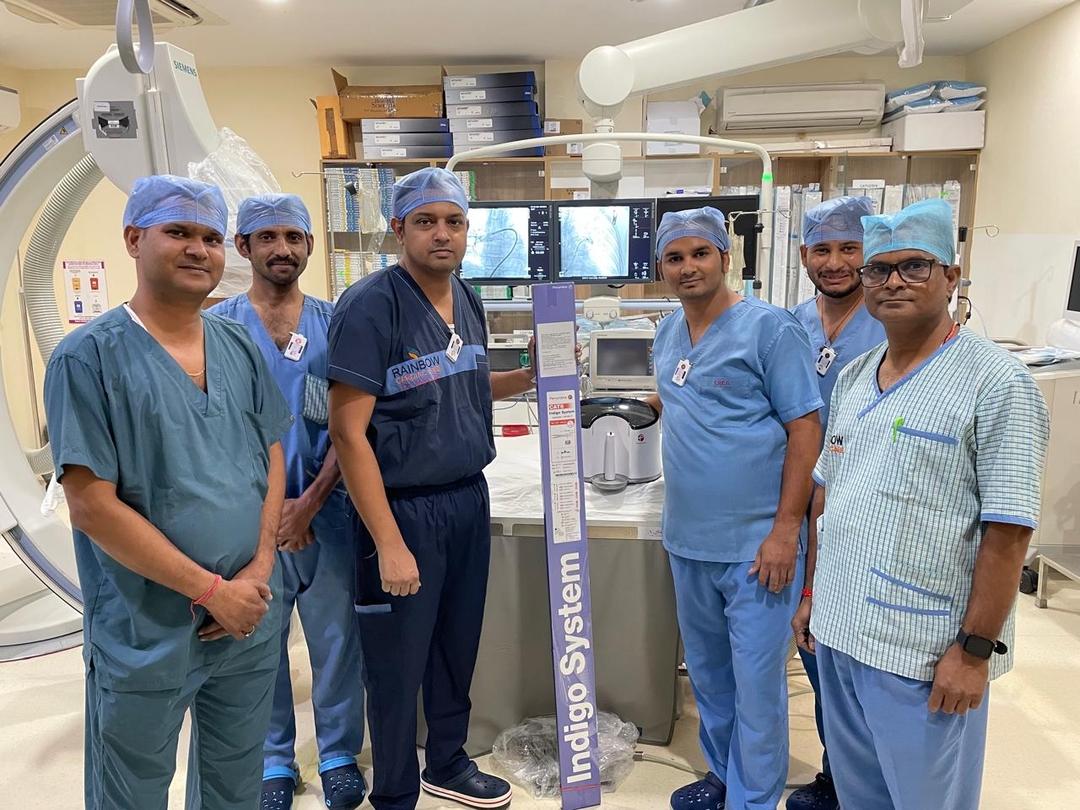
What Are Prebiotic And Probiotic Capsules And What Are It’s Uses?
By Kripal Negi
Reviewed by : Jalaz Jain
February 27, 2023
Probiotics are naturally occurring microorganisms that aid in the digestive process by assisting in the breakdown of meals. To enhance proper digestion, you can take prebiotic and probiotic capsules identical or highly comparable to the ones already in your body. A new category of dietary supplements known as prebiotics has emerged in recent years. Prebiotic and probiotic capsules have been promoted as an ideal complement to a probiotic routine.
The human digestive system cannot break down the carbs that makeup prebiotics. They are there to provide nourishment for the probiotic bacteria that you intend to introduce into your body. Microbiome therapy refers to the practice of combining the consumption of prebiotics and probiotics. There is no requirement that you consume a prebiotic for probiotics to operate; nevertheless, doing so may increase the efficiency of the probiotics.
Explain the difference between pre and probiotic capsules uses
Both prebiotic and probiotic capsules play significant roles in maintaining human health. On the other hand, they each play a unique position:
The bacteria in the digestive tract are responsible for a wide variety of vital body processes and are collectively referred to as gut flora or gut microbiota.
Consuming appropriate prebiotic and probiotic capsules can help you maintain a healthy gut microbiota by ensuring the proper bacteria ratio in your digestive tract.
The importance of pre and probiotic capsules uses for human health .
According to the findings of a study that was conducted in 2012, over 4 million persons take probiotics for their health. There is still a need for additional research to unequivocally determine the advantages of taking supplemental gut bacteria. Despite this, research has shown that probiotics can positively affect one’s health.
There is evidence from research that prebiotic and probiotic capsules uses aligned with treatments for diarrhoea, irritable bowel syndrome, allergy problems, and even the common cold. Both pre and probiotic capsules uses have been brought up as potential therapies for obesity. They are being investigated as a possible method for halting cancer progression. Prebiotic and probiotic capsules uses can be extended as an effective treatment for inflammatory arthritis, according to some promising studies.
How to combine the use of pre and probiotics capsules in your diet?
Always make sure to follow all of the instructions on the product’s packaging. If you want to know how the dose should be taken, the directions on the label of the product you purchased will tell you whether it should be consumed whole, chewed, sprinkled onto food, or mixed with liquid. If taking this medication in liquid form, you must measure the amount with a unique measuring instrument or spoon to ensure accurate dosing. It would help if you did not use a regular spoon since you risk not getting the right amount. If you have any questions, you should consult your physician or pharmacist.
Certain probiotic products may include live bacteria (such as bifidobacteria). Antibiotics may impede the effectiveness of these goods. Before or after taking antibiotics, wait at least two to three hours if you are taking a product that contains live bacteria. Be sure to act following the instructions provided for your product.
Suppose you are experiencing diarrhoea as a side effect of the antibiotics you are taking. In that case, prebiotic and probiotic capsules uses are limited to either having a high temperature or if you plan on using it for up to two days unless otherwise ordered by your physician. You may have a severe condition that calls for medical attention. Seek emergency medical assistance if your ailment persists or worsens or if you have any reason to suspect that you may suffer from a severe medical issue.
Side effects of the use of pre and probiotic capsules
The use of pre and probiotic capsules each comes with its own set of potential hazards.
According to research, prebiotics and probiotics capsules purchased from a store are not likely to cause any adverse effects in healthy individuals. On the other hand, it is doubtful that a healthy person will become ill after consuming specific strains of bacteria found in probiotics. It indicates that not all of the live bacteria utilised in probiotics have been tested for their safety following stringent standards. When considering prebiotics and probiotics capsules uses , it is vital to consider this particular consideration.
When beginning a regimen of synbiotics, it is not uncommon to have some adverse effects. It is not unusual for patients to experience side effects such as bloating, constipation, diarrhoea, and a loss of appetite, particularly when first commencing treatment. Additionally, people have reported experiencing bloating and acid reflux.
The risk of developing an allergic reaction to the bacteria being introduced into the body due to probiotics is an acknowledged risk associated with taking these supplements. You should stop taking the supplement immediately if you get hives or have severe stomach pain after taking a prebiotic or probiotic. Consult a medical professional to find out if you are reacting.
When children are prescribed antibiotics, a probiotic supplement may be suggested as an additional measure of protection. Before administering probiotics to a child under 12, however, consult the paediatrician. It is also considered that probiotics and prebiotics are generally safe to consume during pregnancy as well as while breastfeeding. Before starting any new supplement while pregnant or after giving birth, you should get your doctor’s approval first.
Precautions
Before you use this product, it is essential to discuss your history of allergies with your physician or pharmacist, especially if you know you are allergic to any of the ingredients in this product. There is a possibility that this product contains inactive substances, which, if present, could result in allergic responses or other complications. Discuss the matter further with your pharmacist for further information.
Before using this medicine, you should discuss it with your primary care physician or a pharmacist if you have any of the following health conditions: diarrhoea that lasts for more than two days (particularly if you also have a high temperature), a compromised immune system (such as owing to chemotherapy or HIV infection), recurring vaginal infections, or recurring urinary tract infections are all signs that you may be suffering from a parasitic infection. Products that are liquid, meals, powders, or tablets that may be chewed could all include sugar or aspartame. If you have diabetes, phenylketonuria (PKU), or any other condition that requires you to limit or avoid these ingredients, you should exercise caution when consuming this food. Talk to your primary care physician or local pharmacist about properly using this medicine.
Before undergoing surgery, discussing the products, you use with your dentist or doctor (including prescription, nonprescription, and herbal products) is essential.
Only when necessary should you use this product when you are pregnant. Talk to your healthcare provider about the potential drawbacks and advantages.
It is not known if this substance makes its way into breast milk. Before beginning breastfeeding, you should consult your physician.
Please seek the advice of your pharmacist or physician.
Interactions
Drug interactions can alter how your prescriptions work or increase the likelihood that you will have significant adverse effects. This document does not contain all possible medication interactions. Maintain a list of all the goods you use, including prescription and over-the-counter medications and herbal remedies, and give it to your primary care physician and pharmacist. You must consult your physician before you start, discontinue, or alter any medication’s dosage.
Antibiotics and antifungals could interact with probiotics (such as clotrimazole, ketoconazole, griseofulvin, and nystatin).
Overdose
If you suspect someone has overdosed and is exhibiting severe symptoms such as passing out or having difficulty breathing, seek medical help immediately. In any other case, contact a poison control centre as soon as possible.
Notes
Always be on time for your scheduled checkups and laboratory tests.
Some brands might also have additional components, such as fibre or inulin, in their makeup. If you have any questions about the details of the product that you are using, you should consult your physician or pharmacist.
Neglected Dose
If you forget to take a dose, you should take it as soon as you realise you forgot. If it is getting close to the time of the next dose, you should forgo the quantity that you missed. Your next dose should be taken at the typical time. It is optional to double the amount to catch up.
Storage
Different kinds of probiotics may require different storage conditions. It’s possible to be refrigerated, while others absolutely shouldn’t. Check the product’s packaging instructions to learn how to keep your purchase correctly. If you have any issues concerning storage, ask your pharmacist. Always ensure that children and animals are kept from any medications.
Unless otherwise directed, you should neither flush drugs down the toilet nor pour them down a drain. When it has passed its expiration date or is no longer required, dispose of this product appropriately. Talk to your neighbourhood pharmacy or the firm that handles garbage disposal in your area.
Takeaway
Because different bacteria strains are used, each probiotic has its unique characteristics. Everyone doesn’t need to take a probiotic supplement, and not all probiotics will function the same way for you. Look for a probiotic that does not contain dairy if you cannot tolerate lactose. If you have an overgrowth of yeast (Candida), you should be aware of this and choose a probiotic that does not include Candida.
Those who are taking antibiotics are the ones who would gain the most from a combination of prebiotic and probiotic bacteria. Taking antibiotics can result in the death of otherwise beneficial microorganisms; the synbiotic effect can help mitigate this side effect.
Want to know all about the use of pre and probiotic capsules? Book an appointment now at Ujala Cygnus Hospital.
Loading...












